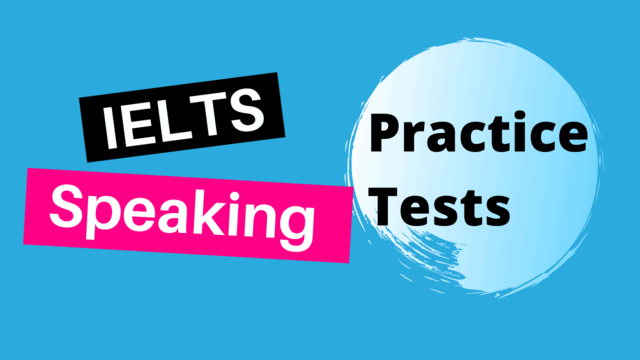The IELTS Speaking test is an essential part of the IELTS exam, designed to assess your ability to communicate effectively in English. The test is divided into three sections: Part 1 (Introduction and Interview), Part 2 (Long Turn), and Part 3 (Discussion). The topic of Cooking is frequently seen, as it reflects aspects of culture, daily life, and personal habits—areas that help examiners evaluate your fluency and vocabulary. Below is a 10-question sample test on the topic of Cooking, complete with answers. This sample also includes helpful tips for achieving a high score in the IELTS Speaking test.
IELTS Speaking Test Sample: Topic – The Cooking

Part 1: Introduction and Interview
- Question: Do you enjoy cooking? Why or why not?
- Answer: Yes, I enjoy cooking because it allows me to be creative and experiment with different ingredients. I also find it relaxing, and it’s a great way to unwind after a long day.
- Question: How often do you cook at home?
- Answer: I cook about three to four times a week, depending on my schedule. I prefer homemade meals because they’re healthier and I can control the ingredients and portions.
- Question: What is your favorite dish to cook?
- Answer: My favorite dish to cook is pasta. It’s versatile and easy to prepare, and I love experimenting with different sauces and ingredients to create new flavors.
- Question: Do you think cooking is a valuable skill to have?
- Answer: Absolutely. Cooking is a life skill that not only helps you eat healthier but also saves money. Plus, it gives you the satisfaction of creating something yourself.
Part 2: Long Turn
- Question: Describe a time when you cooked a meal for someone. You should say:
- what the occasion was
- who you cooked for
- what you cooked
- and explain how you felt about it.
- Answer: A memorable time I cooked for someone was my friend’s birthday. I wanted to do something special, so I prepared a full dinner with a few of her favorite dishes, including a Thai curry and a chocolate cake for dessert. I felt both excited and nervous, but in the end, it was rewarding to see how much she appreciated it. It made me realize how cooking can be a wonderful way to show care and appreciation for others.
Part 3: Discussion
- Question: Do you think people cook less now compared to the past? Why?
- Answer: Yes, I think people cook less nowadays because of busy lifestyles. Many people prefer ordering food or eating out because it’s quicker and more convenient than preparing a meal from scratch.
- Question: How has the Internet influenced cooking habits?
- Answer: The Internet has made cooking easier and more accessible. People can watch cooking videos, find recipes online, and even join virtual cooking classes. It’s also a great way to learn about different cuisines from around the world.
- Question: Do you think schools should teach cooking to students?
- Answer: Yes, I believe cooking should be taught in schools because it’s a valuable life skill. Learning to cook helps students become more independent and teaches them about nutrition and the importance of a balanced diet.
- Question: Are traditional cooking methods still relevant today?
- Answer: I think they are still relevant, especially in cultures where food is a central part of traditions. Traditional cooking methods often bring unique flavors and textures that modern techniques can’t replicate. Plus, they help preserve cultural heritage.
- Question: What are the benefits of cooking at home compared to eating out?
- Answer: Cooking at home is usually healthier because you control the ingredients and portion sizes. It’s also more economical, and it allows people to spend quality time with family or friends while preparing and enjoying meals together.
Tips for Scoring High in IELTS Speaking
- Work on Pronunciation and Intonation
Pronunciation is key in IELTS Speaking, and intonation can help convey emotion and emphasis. Practice pronouncing words related to cooking, and try to sound natural by modulating your tone. - Use Varied Vocabulary
Expand your vocabulary by learning specific cooking-related terms like “ingredients,” “techniques,” “recipes,” “cuisine,” and “flavors.” This will help you avoid repetition and show the examiner that you have a strong range of vocabulary. - Structure Your Responses Clearly
Structure your responses with a clear beginning, middle, and end. This makes your answers easier to follow and shows that you can organize your thoughts logically. - Include Complex Grammar
Use a variety of sentence structures, such as conditional sentences (“If I didn’t cook, I’d probably spend more money on food”) and comparative forms (“Cooking at home is usually cheaper than eating out”). This will showcase your grammatical ability and improve your score. - Practice Fluency and Pace
Avoid long pauses, and aim to speak at a steady pace. If you don’t know the answer, try to stay calm and talk around the topic by explaining your general opinion or experience with cooking.
By following these tips and practicing with the sample questions provided, you can improve your fluency, vocabulary, and overall confidence, all of which are essential for achieving a high score on the IELTS Speaking test.
